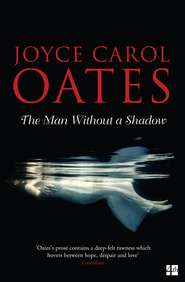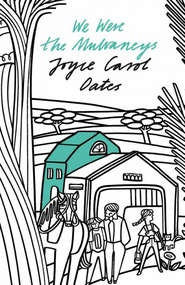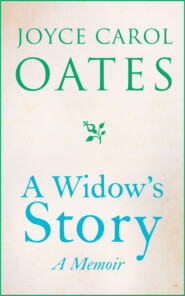По всем вопросам обращайтесь на: info@litportal.ru
(©) 2003-2025.
✖
Little Bird of Heaven
Автор
Год написания книги
2019
Настройки чтения
Размер шрифта
Высота строк
Поля
Yes. I do mind. Please.
At the time, I had not been told much about what my mother and her family chose to call the trouble. I was believed to be an overly sensitive, excitable girl and so, more than my brother Ben, I was to be spared. But I knew that my father, who was no longer living with us, was a suspect in a local murder case, that he’d had to hire a lawyer, and in time he’d had to fire that lawyer and hire another lawyer; and, inevitably, he’d come to owe both lawyers thousands of dollars more than he could have hoped to pay them; for he was obliged to continue to support his family, which meant my mother, my brother, and me; and he’d lost his job at Sparta Construction, Inc. where he’d worked since the age of twenty, first as a carpenter’s assistant, then as a carpenter, then he’d been promoted to foreman/manager by his employer who was also his friend or had been his friend until he’d been taken into police custody.
All these facts, I knew. Though no one had told me openly.
The trouble was as good a way as any of pointing to what had happened. The trouble that has come into our lives my mother would say, as Daddy would say The trouble that has come into my life.
Like lightning from the sky. A catastrophe from out there.
When he’d been released from police custody for the second and final time—in late April 1983—my father was told that he was free to leave Sparta, and so he moved to Watertown, sixty miles to the north on the St. Lawrence River, where he got a job as a roofer; then he moved to Buffalo, two hundred miles to the west, where he worked construction. There was a time he lived in the Keene Valley in the Adirondacks, working for a logging company. And later, we heard he had a job with Beechum County, which was adjacent to Herkimer—snow removal, highway construction. In our lives my father appeared, and disappeared; and again appeared, and disappeared. He sent birthday cards to Ben and me—though never quite in time for our birthdays. He sent Christmas cards to LUCILLE, BENJAMIN & KRISTA DIEHL, R.D. # 3, HURON PIKE RD., SPARTA N.Y. signed in a large childlike scrawl LOVE, DADDY. Sometimes just LOVE DADDY. (These cards I scavenged from the trash where my mother had thrown them, to hide away in my secret Daddy-notebook.)
There came months of silence. No one spoke of Eddy Diehl, no one seemed to know where he was. But one evening the phone would ring and if our mother answered it we’d hear a sharp intake of breath and then Mom’s steely response: “No. It’s over. It’s finished. No more.”
If Ben answered, quickly he’d hang up the phone. White-faced and quivering Ben slammed out of the room—“That sick, sorry bastard. Why doesn’t he let us alone.”
If I answered—if Mom wasn’t there to hear me, and to snatch away the receiver—Daddy and I might talk, a little. Awkwardly, eagerly. My voice was tremulous and low-pitched and my heart beat hard hard hard like the wings of that little bird of heaven in the song Zoe Kruller once sang.
6 (#ulink_89202005-37dd-522d-91fa-8e2603c638e7)
“KRISTA. CLIMB IN.”
Outside, at the rear exit of the school, Daddy’s car was waiting.
A vehicle unknown to me, I was sure I’d never seen before. A shiny expanse of dark-coppery metallic finish, gleaming chrome fixtures, new-looking, you might say flashy-looking, with whitewall tires and hubcaps like roulette wheels: one of Eddy Diehl’s specialty-autos.
These were purchases of secondhand cars of some distinction which Daddy would rebuild or “customize”—drive for a while, and resell, presumably at a profit. They were older-vintage cars—Caddies, Lincolns, Olds—or newer-vintage Thunderbirds, Corvettes, Stingrays, Mustangs, Barracudas; they were mysteriously acquired through a friend of a friend needing money suddenly, or bankruptcy sales, police auctions. Through my childhood these specialty-autos were both thrilling and fraught with peril for the purchases upset my mother even as they were wonderful surprises for my brother and me. Typical of Daddy to simply arrive home with a new car, without warning or explanation. There in the doorway stood Daddy rattling car keys, with his foxy-Daddy grin: “Look out in the driveway. Who wants a ride?”
We did! Ben and me! We adored our unpredictable Daddy!
It was like that now, this abruptness. My father showing up at school, in the gym. And now here. The demand that if you loved him you leapt unquestioning into the happiness that Eddy Diehl was offering you—otherwise the foxy-smile would cease abruptly, a hard cruel light would come into the narrowed eyes.
Without thinking—not a glimmer of caution—Do I want this? Where will he take me? What will happen to me?—nor recalling that my mother expected me home as usual within forty minutes, in this season in which dusk came early, before 5 P.M.—I climbed into the passenger’s seat of this impressive vehicle my father was driving and dropped my backpack onto the floor.
“Jesus, Puss! It’s been a hell of a long time.”
My father grabbed me: rough bear-hug, wet-scratchy kiss, unshaven jaws, fumey smell of his breath.
“Sweet li’l Puss”—“Krissie-baby.” Names no one had called me in a very long time.
As no one had hugged, kissed me like this in a very long time.
Daddy must have been forty-five—forty-six?—now. A large tall man—six foot four, 220 pounds—mostly solid meaty-muscle though beginning to slacken at the waist. He’d been a high school athlete (football, baseball) and in his early twenties he’d been a Private First Class in the U.S. Army (Vietnam) and he walked now with a slight limp in his right leg (shrapnel, wartime). He had declined to tell Ben and me about his Vietnam experiences, or adventures—we were certain that he’d had some—though we had never located any Vietnam snapshots, souvenirs, even Daddy’s medals (Purple Heart, Distinguished Service Medal) or letters from friends—he’d had to have had friends in his platoon, Eddy Diehl was such a gregarious man—but always he’d shrug us off evasively muttering It’s over, kids. Don’t go there.
Our mother didn’t encourage us to “provoke” Daddy. He was hurt, he was in the hospital for eight weeks. His mother told me, they thought he might not live.
And another time our mother told us, in a lowered voice He has never talked about it with me and it’s best that way.
In scorn I’d thought: What kind of selfish wife doesn’t even want to know about her husband in the war?
How easily, Daddy could have crushed me in his embrace. I would not realize until afterward—I mean years afterward—that Daddy may have been frightened of me, of the fact of me so suddenly with him, in his car; his laughter was loud, delighted. Possibly it was the laughter of disbelief, wonder, a pang of conscience—My daughter? My daughter I am forbidden to see? She has come to me, this is—her?
“That’s my good girl. My good—brave—girl.”
Tenderly my father’s large hands framed my face. My father’s large calloused hands. Once I had seen my father seize my mother’s face in his hands like this—not in love but in fury, exasperation—to make my mother listen, to make my mother see—and the long-ago memory came to me now, with a stab of panic. And yet, how unresisting I was: like a child whose anxiety has at last been quelled, all fear banished even fear of Daddy. Such luxury to be so gripped, so kissed and so loved. I knew that my father would never hurt me. Tears stung my eyes, ran down my face that throbbed with hurt from having been struck by a carelessly thrown basketball within the past hour. I could not have recalled when my mother had last kissed or even hugged me—could not have recalled when I’d last wished to be kissed or hugged by her. Such displays of emotion would have embarrassed us both. We’d have steeled ourselves to hear my brother say—this was one of Ben’s too-frequent household remarks delivered in a droll dry voice of disgust—Cut the crap for Christ’s sake. This ain’t TV.
This was not TV, I thought. This was improvised, unknown. This had not happened before. Or, if it had happened, it had not happened to me.
School buses were idling nearby, sending up sprays of exhaust. My classmates were running through the rain and there was much commotion in the parking lot as the buses were loading, preparing to leave. Headlights would have illuminated my father’s and my excited faces which Eddy Diehl would not have wished.
Is that—Eddy Diehl? The one who—
Is he with his daughter? What’s-her-name—
Quickly Daddy put his car in gear, drove out of the parking lot.
In the rain we drove for some confused yet exhilarant minutes. Not knowing where he was taking us—Edgehill Street, East End Avenue, Union Avenue—lower Main Street, a turn and steeply downhill to Depot—these streets of Sparta so familiar, in truth they lacked names to me—they were but directions, impulses—taking us away from my school where we might be recognized but lacking a destination since there was no longer a common destination in our lives.
With something of his old pride in such showy purchases my father was telling me about the car he was driving, a 1976 Caddie he’d acquired just in time for this visit. The finish was “Red Canyon” and the interior was “cream-colored leather, genuine.” This “beaut” of a car naturally came with power steering, whitewall tires, V-eight engine, air-conditioning, radio and tape deck, more mileage for the gallon than any other U.S. “luxury car.”
It was so, Daddy conceded, the Caddie’s chassis had had to be rebuilt after a rear-ending but the engine was in “damned good shape—you can hear it.”
I listened, I could hear it. Eagerly I nodded Yes yes! I can hear it.
Stammering with schoolgirl emotion I told my father that this was the most beautiful car of his, ever. The most fantastic car I’d ever ridden in.
“Well. Pretty close, Puss.”
Maybe what I said was true. Daddy’s specialty-autos had all been spectacular. But each spectacular vehicle—Oldsmobile Cutlass Supreme, Lincoln Versailles, Chevy Corvair, vintage Thunderbird and vintage Studebaker—had a way of displacing its predecessor as the most vivid and seductive dreams are displaced by their predecessors, and begin at once to fade.
There was a pause, I knew that my father would have liked to ask what kind of car Lucille was driving now. By implication Your life with your mother is pitiable. Like the love you get from your mother. But then I thought that Eddy Diehl would probably know exactly what sort of car Lucille was driving—which of the not-new but serviceable cars sold to her by relatives, or given to her outright.
Yes, my father would surely have known what my mother was driving at this time. Before seeking me out at school Daddy would have sighted and observed my mother at the Second Time ‘Round Shop—he’d have parked up the street, or in the parking lot at the rear. It was known that Eddy Diehl kept “close tabs” on his former wife Lucille by way of those several Diehl cousins with whom he remained close, conspiratorial; most of the Diehls continued to “believe in” Eddy, and detested Eddy’s former wife for not having “stood by him” when he’d needed her so badly.
And so it seemed to me suddenly, my father probably knew more about my mother’s private life than Ben and I knew, who would not have had the thought that our middle-aged, fretting and deeply unhappy mother could have a private life!
“—a little surprised, Krista but it’s a good surprise, how you’ve grown. I mean—tall. You’re going to be a tall girl. And pretty. You’re going to be damn pretty. Not that you aren’t pretty now, Puss—but—”
Daddy spoke distractedly as he drove the showy Cadillac through the rain, now beneath a railroad overpass where skeins of water lifted like wings behind us and I feared something might happen to the high-caliber engine, and we’d be stuck in a foot of water, “—and playing basketball with those girls—big tough Indian-looking girls—frankly, Puss, your Daddy was—” In a kind of genial-Daddy wonderment his voice trailed off. This was the sort of praise you might direct toward a child about whom you are thinking very different thoughts.
When my father wasn’t speaking in his loud blustery in-control Daddy voice, I’d come to hear another sort of voice: one that bore a wounded sweetness. Sometimes I woke from tumultuous dreams hearing this voice, recalling no coherent words but shivering with yearning. Observing my father now I saw that—of course, this should not have been suprising—he looked older. His face had thickened at the jawline, his skin was weathered and creased with a look like hard-baked bread. The thick rust-red hair threaded with mica-gray was in fact thinning at the back of his head where he was spared having to see it as he was spared having to see, and kept hidden from the world, the mass of swirling scar tissue, of the color of lard, that disfigured much of his right leg and knee.
Never did Eddy Diehl wear shorts, on the hottest days of summer. Never had he gone swimming with us, at Wolf’s Head Lake.
Though I’d glimpsed the injured leg, from time to time. I’d had to wonder if my mother saw it often, in my parents’ bedroom; if my mother was suffused with love for Daddy, for having suffered in wartime combat, or whether she felt a subtle revulsion for the disfigured flesh.
If she felt a subtle revulsion for my father’s maleness. His sexuality.
Daddy was saying now, how he’d been missing me. How he’d missed his “beautiful daughter”—how “God-damned depressed and in despair” he’d been missing his daughter he loved “more than anything on this earth.”











